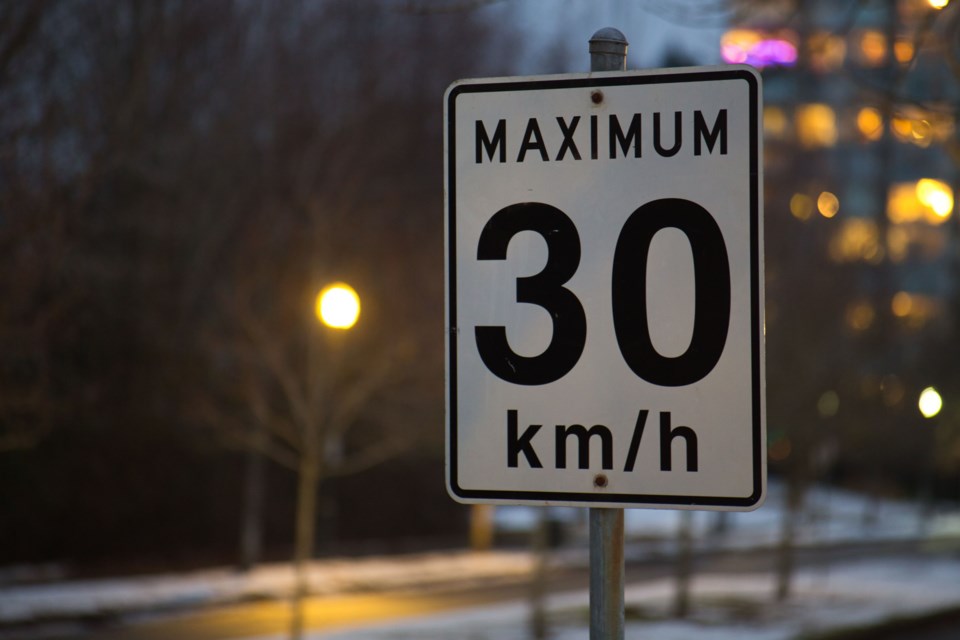New Westminster is among the B.C. communities receiving provincial funding to help with road safety.
The province has awarded more than $866,000 in Vision Zero grants to 53 projects in 56 communities, including 22 projects in First Nations communities.
"The Vision Zero grants go a long way to prioritizing safety and well-being on our roads," Health Minister Adrian Dix said in a news release. "By investing in innovative solutions and community-driven initiatives, we not only aim to prevent collisions but also cultivate a culture of responsibility and care. Together, let us strive toward a future where zero lives are lost due to preventable road collisions."
The City of New Westminster is receiving $10,781 to purchase and install two speed reader boards. The province said they will be deployed at locations where a recent road safety review identified high vehicle speed as a significant contributing factor in injury crashes.
Vision Zero is a community-based grant program that aims to improve road safety through established standards and policies. The grants are provided by the province through the Ministry of Health and the Ministry of Transportation and Infrastructure, with regional health authorities providing additional funding top-ups.
"Keeping people safe on our roadways starts with building transportation infrastructure that protects vulnerable road users," said Rob Fleming, Minister of Transportation and Infrastructure. "These grants will give communities the funds they need to break ground on projects that will make our roads safer and encourage more people to use active transportation options."
The funding was provided through health authorities to local governments, non-government organizations (including school districts, parent advisory councils, road safety advocacy groups) and Indigenous communities. The grants are meant to help them plan projects that increase the safety outcomes of vulnerable road users (pedestrians, cyclists, roadside workers, etc.) by improving the safety of roads.
According to the province, road-related injuries and deaths are a significant cause of health-care system usage and affect patient and health-system capacity. They result in $312 million in direct health-care costs each year.
“By prioritizing funding for safer roads, we’re not only preventing injuries and saving lives, but also fostering a more seamless experience for active transportation,” New Westminster ML Jennifer Whiteside said in a news release. “Through initiatives like speed reader boards, we’re directly addressing the factors contributing to accidents.”
Projects funded by Vision Zero include improved crosswalk infrastructure, traffic calming, speed limit reduction pilots, speed reader boards, improved lighting, road safety planning, and more.
By adopting Vision Zero, the province hopes to make roads safer for pedestrians, active transportation users and drivers.
“Vision Zero grants aim to support B.C.'s Active Transportation Strategy, which includes the goal of doubling the percentage of active, or human-powered, transportation by the year 2030,” said a news release from the province. “By making roadways safer for active transportation users, roads also become safer for people using motor vehicles.”




